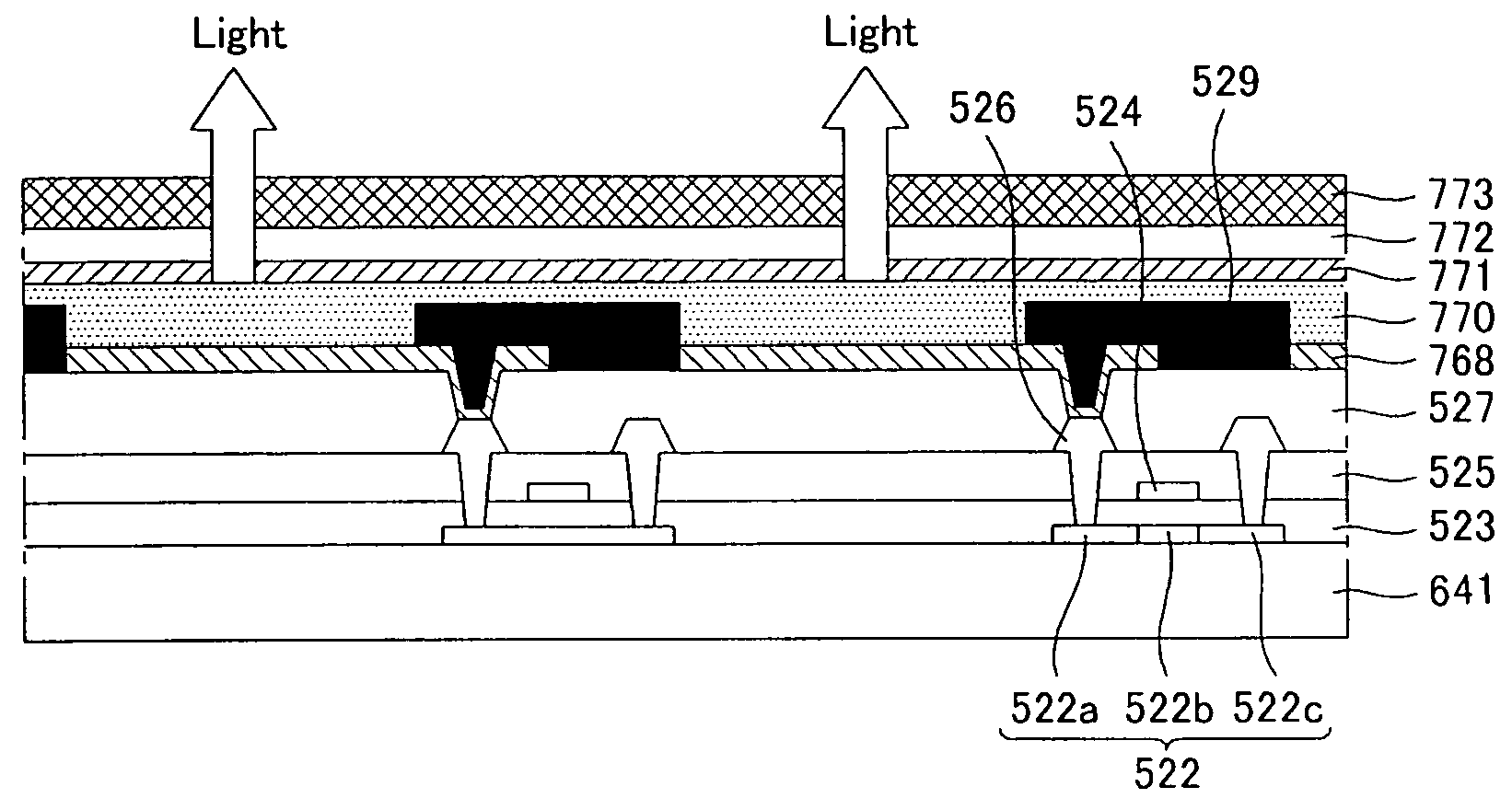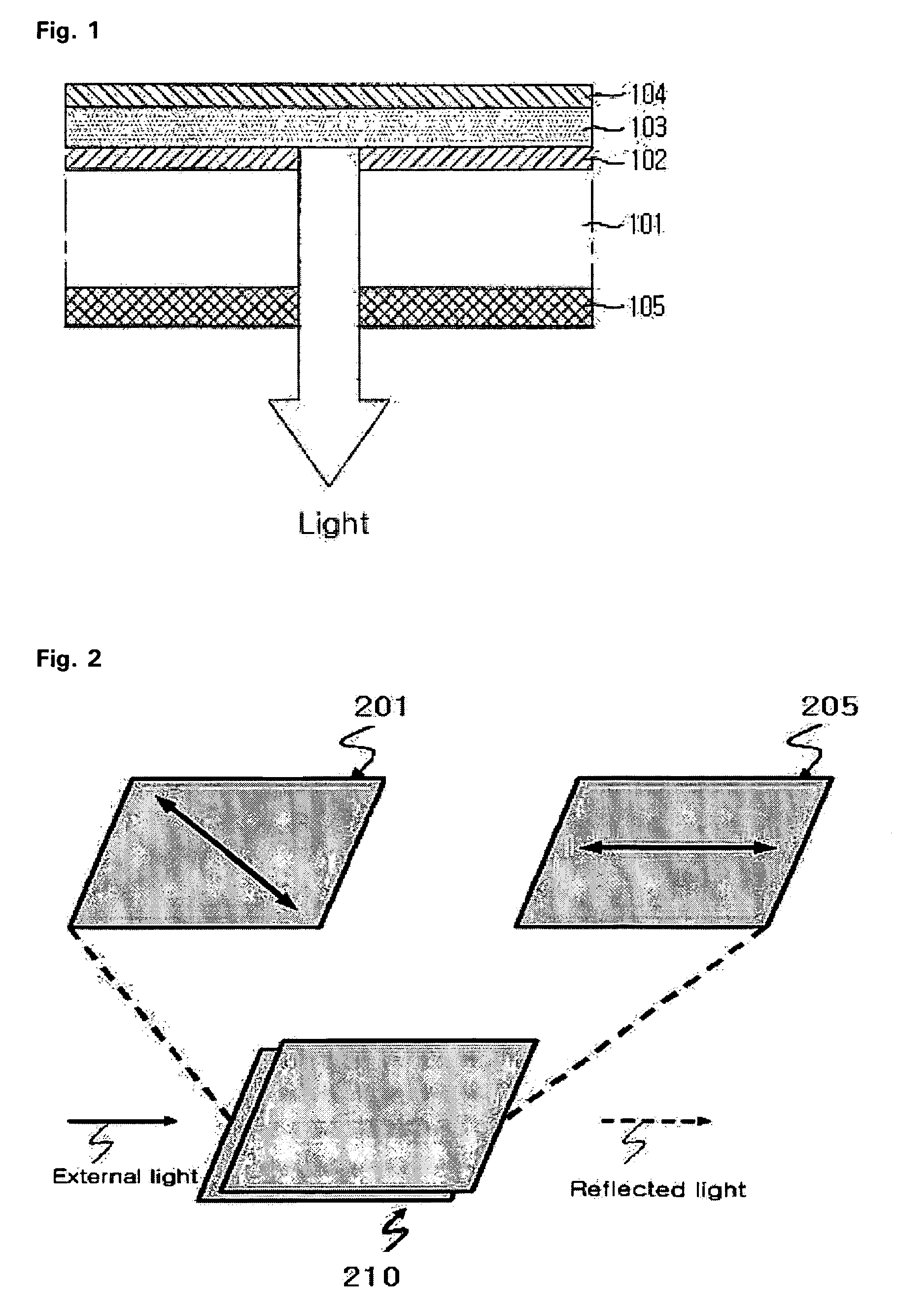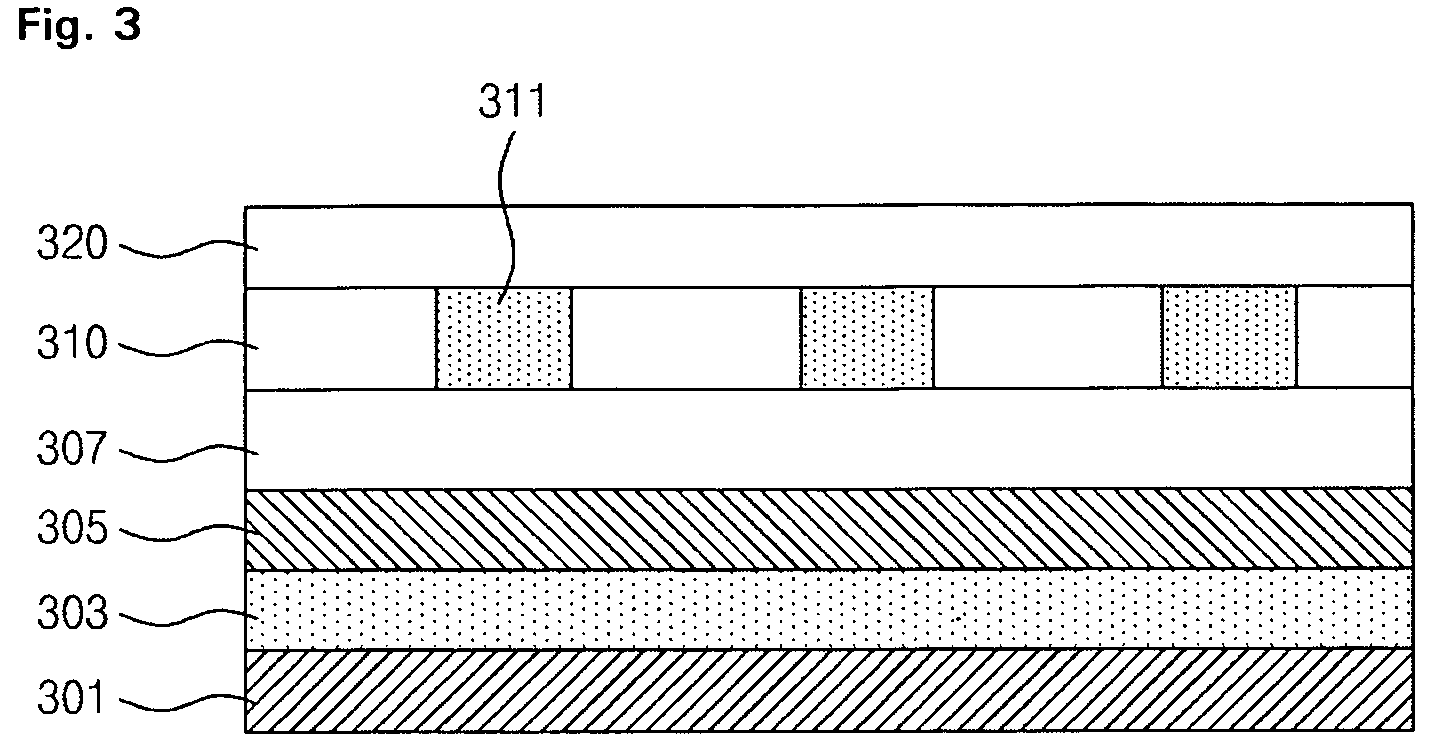Organic electroluminescent device with black insulator
a black insulator and electroluminescent device technology, applied in the field of display devices, can solve the problems of reducing transmissivity, reducing brightness, and reducing contrast, so as to improve the picture quality and improve the brightness of the organic el device
- Summary
- Abstract
- Description
- Claims
- Application Information
AI Technical Summary
Benefits of technology
Problems solved by technology
Method used
Image
Examples
first embodiment
[0063]FIG. 3 is a cross-sectional view illustrating the construction of an organic EL panel to which a filter according to the present invention is applied.
[0064]The organic EL panel includes an anode 305 and a cathode 301 with a phosphor layer 303 interposed therebetween.
[0065]The anode 305 may be formed as a front electrode layer located in front of the panel that is generally made of indium tin oxide (ITO). ITO is a thin film material used for transparent electrodes, and is coated on the thin film to form a transparent electrode by means of a vacuum deposition method, thereby implementing conductivity. Generally, the transmissivity of the front electrode layer of the anode 305 is 80% or more.
[0066]The phosphor layer 303 can consist of a R / G / B phosphor layer or a white phosphor layer depending on its light emission mode. If the phosphor layer 303 is composed of the white phosphor layer, a R / G / B color filter is further formed on the anode 305, thereby properly implementing R / G / B pi...
second embodiment
[0105]FIGS. 7a to 7c are views illustrating the construction of an organic electroluminescent device according to the present invention.
[0106]The organic electroluminescent device of a passive type according to the second embodiment of the present invention will be below described with reference to FIGS. 7a to 7c.
[0107]Referring first to FIG. 7a, a plurality of anodes 412 made of ITO (Indium Tin Oxide) is formed on a transparent substrate 411 with a given distance therebetween. A black insulating film 413 for providing insulation among pixels is then formed on the entire surface other than pixel portions A, which will become light-emitting regions.
[0108]In this time, preferably, the black insulating film 413 covers portions except for the light-emitting regions (pixel portions A), and can be patterned in the form of a stripe or matrix.
[0109]Further, the black insulating film 413 can be made of any one of organic material, inorganic material, polymer, inorganic material oxide, and a...
third embodiment
[0118]FIG. 9 is a view illustrating the construction of an organic electroluminescent device according to the present invention.
[0119]The construction of the organic electroluminescent device according to this embodiment will now be described with reference to FIG. 9. It is to be noted that the organic electroluminescent device according to this embodiment has the same basic construction as that of the second embodiment except that it is an active type organic electroluminescent device.
[0120]First, a semiconductor layer 522 such as polysilicon, which will be used as an active layer of a thin film transistor, is formed on a transparent substrate 521, and is then patterned.
[0121]A gate insulating film 523 is formed. Next, a gate electrode 524 is deposited and is then patterned.
[0122]Then, an impurity such as boron (B) or phosphor (P) is injected into portions of the semiconductor layer 522, and is then annealed to form a source-drain region 522a-522c of the thin film transistor.
[0123]...
PUM
| Property | Measurement | Unit |
|---|---|---|
| voltage | aaaaa | aaaaa |
| voltage | aaaaa | aaaaa |
| reflectance | aaaaa | aaaaa |
Abstract
Description
Claims
Application Information
 Login to View More
Login to View More - R&D
- Intellectual Property
- Life Sciences
- Materials
- Tech Scout
- Unparalleled Data Quality
- Higher Quality Content
- 60% Fewer Hallucinations
Browse by: Latest US Patents, China's latest patents, Technical Efficacy Thesaurus, Application Domain, Technology Topic, Popular Technical Reports.
© 2025 PatSnap. All rights reserved.Legal|Privacy policy|Modern Slavery Act Transparency Statement|Sitemap|About US| Contact US: help@patsnap.com



